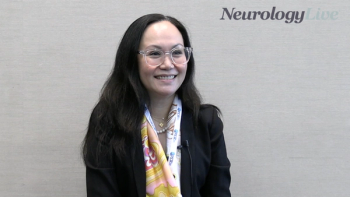
The associate professor of neurology at NYU Grossman School of Medicine discussed her talk at IFN 2023 on advancements in epilepsy treatments, highlighting new medications and surgical options. [WATCH TIME: 3 minutes]

The associate professor of neurology at NYU Grossman School of Medicine discussed her talk at IFN 2023 on advancements in epilepsy treatments, highlighting new medications and surgical options. [WATCH TIME: 3 minutes]
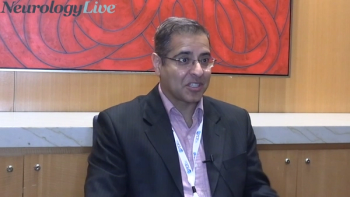
The professor of neurology and resident program director at MedStar Georgetown University Hospital discussed how Parkinson disease motor fluctuations are managed amid new, novel technologies incorporated in the field. [WATCH TIME: 4 minutes]
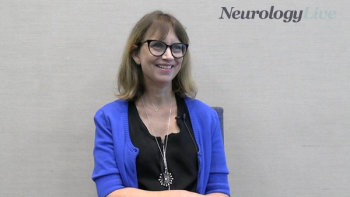
The codirector of the Mount Sinai Epilepsy Program at the Icahn School of Medicine at Mount Sinai talked about the Women in Neurology and Leadership session she spoke in at IFN 2023. [WATCH TIME: 3 minutes]
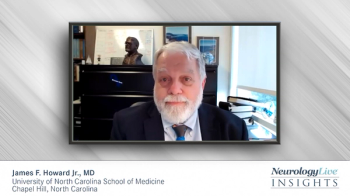
James F. Howard Jr, MD, shares thoughts on the future of the treatment of gMG, highlighting the renewed interest in the disease landscape.

An expert neurologist reviews efficacy and safety data of rozanolixizumab, an FcRn-targeting agent approved for treatment of gMG, as well as how it differs from efgartigimod.

James F. Howard Jr, MD, discusses both intravenous and subcutaneous efgartigimod for the treatment of gMG.
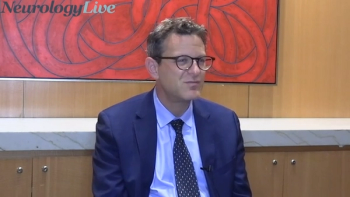
The director of the Center for Brain Health and Alzheimer Prevention Clinic at Florida Atlantic University provided perspectives on the multimodal, multitargeted approach needed to treat Alzheimer disease. [WATCH TIME: 5 minutes]
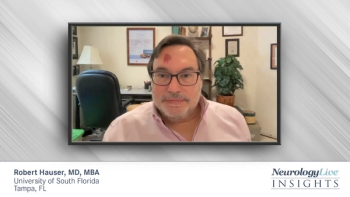
Robert Hauser, MD, MBA, reviews the predictability of dyskinesia and OFF episodes in Parkinson disease.

Robert Hauser, MD, MBA, discusses how the patient experience is defined in Parkinson disease.
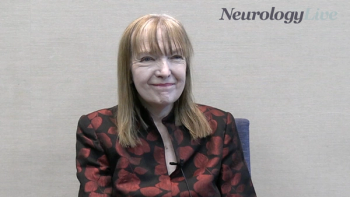
The professor of neurology at Stony Brook University Medical Center discussed the progress observed in the field of multiple sclerosis and the lack of effective treatments for progressive forms of the disease. [WATCH TIME: 3 minutes]
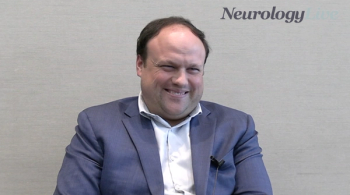
The associate professor of neurology at Vanderbilt University Medical Center discussed the progress in stroke care, focusing on ischemic strokes and cerebral hemorrhages, and their connection with vascular diseases and cognitive disorders. [WATCH TIME: 3 minutes]
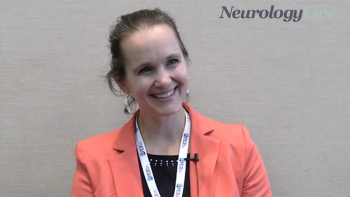
The associate professor of neurology at Yale School of Medicine discussed the differentiation of neuromyelitis optica spectrum disorders and myelin oligodendrocyte glycoprotein -associated disease from multiple sclerosis at IFN 2023. [WATCH TIME: 5 minutes]
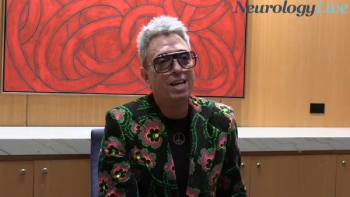
The director of the Duke ALS Clinic at Duke Health provided perspective on the issues with getting newly approved ALS therapies to patients who need them the most. [WATCH TIME: 4 minutes]
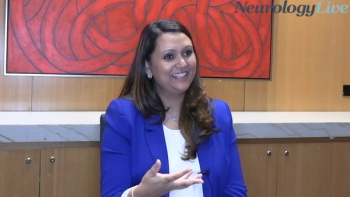
The director of the MedStar Georgetown Headache Center provided insight on the excitement behind PACAP, how it may offer an alternate way of treating migraine, and where research behind it currently stands. [WATCH TIME: 4 minutes]
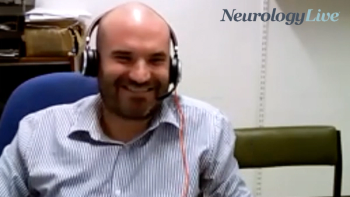
The movement disorder specialist at Cambridge University Hospitals NHS Foundation Trust discussed the rise of wearable technology for managing Parkinson disease to potentially empower patients and monitor the disease at early stages. [WATCH TIME: 4 minutes]
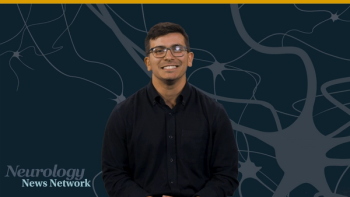
Neurology News Network for the week ending September 23, 2023. [WATCH TIME: 3 minutes]

The chief medical officer at ML Bio Solutions, an affiliate of BridgeBio, talked about the importance of awareness for neuromuscular diseases such as Duchenne muscular dystrophy and why a timely diagnosis can make a profound difference in a patient’s life. [WATCH TIME: 3 minutes]
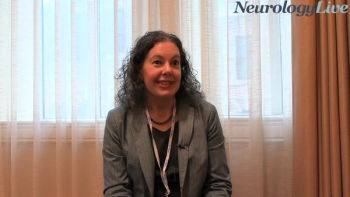
The associate professor at Washington University School of Medicine provided commentary on the state of care for pediatric stroke, and the challenges with identifying the most likely etiology. [WATCH 3 minutes]
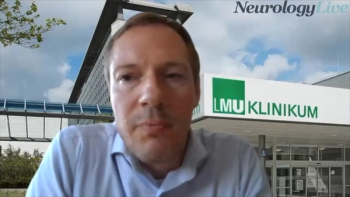
The professor of neurology and translational neuroscientist at Ludwig-Maximillian’s University Munich discussed the reasons behind specific inclusion criteria and outcomes used in the phase 3 ORION study of AMX0035 in progressive supranuclear palsy. [WATCH TIME: 4 minutes]

An expert neurologist comments on the need for generalized myasthenia gravis treatment to be tailored to the patient to alleviate symptoms without significant adverse effects.

An expert reviews targeted therapies in generalized myasthenia gravis, highlighting complement and neonatal Fc receptors.
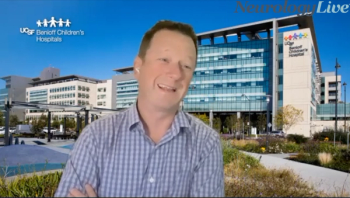
The director of the Pediatric Epilepsy Center at UCSF provided perspective on the advances in the treatment of Dravet syndrome, emerging research concepts in the field, and the influence of genetic testing. [WATCH TIME: 5 minutes]
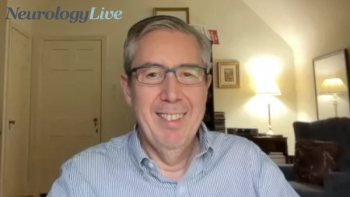
The adjunct professor of human genetics at Emory University School of Medicine talked about efforts from various communities in neurological disorders, such as Rett syndrome, to develop new measures for research. [WATCH TIME: 3 minutes]

The chief medical officer at ML Bio Solutions, an affiliate of BridgeBio, discussed how promising conversations between researchers and regulatory authorities suggest a potential pathway for accelerated approval for limb-girdle muscular dystrophy type 2I/R9. [WATCH TIME: 3 minutes]

The movement disorder specialist at Cambridge University Hospitals NHS Foundation Trust talked about a patient with treatment-resistant Parkinson disease who experienced significant improvement in motor symptoms after using a vibrational therapy. [WATCH TIME: 8 minutes]
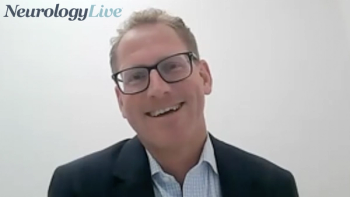
The chief medical officer at ML Bio Solutions, an affiliate of BridgeBio, discussed developing therapies for rare neuromuscular diseases such as limb girdle muscular dystrophy 2I/R9 and the unique challenges that occur in clinical trial settings. [WATCH TIME: 5 minutes]
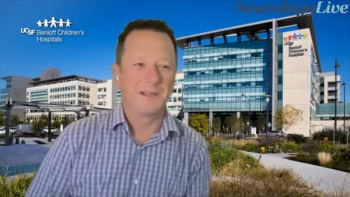
The director of the Pediatric Epilepsy Center at UCSF discussed STK-001, an antisense oligonucleotide in development for Dravet syndrome, and the promise behind this type of targeted approach. [WATCH TIME: 4 minutes]
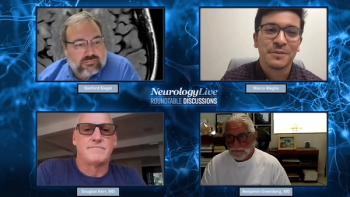
A panel of neurology experts detailed the importance that community leadership and creating a positive environment can do for patients with rare neurologic disorders [WATCH TIME: 5 minutes]
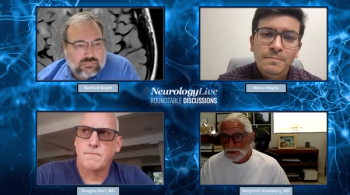
Sanford Siegel, Douglas Kerr, MD; and Benjamin Greenberg, MD, detailed the need for greater research on treatment strategies that repair myelin improve neurodegeneration, as well as expanded knowledge on how neuroimmune disorders present. [WATCH TIME: 5 minutes]
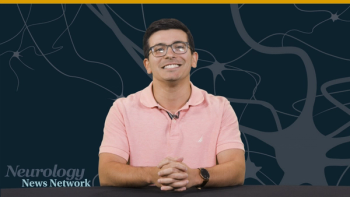
Neurology News Network for the week ending September 16, 2023. [WATCH TIME: 3 minutes]